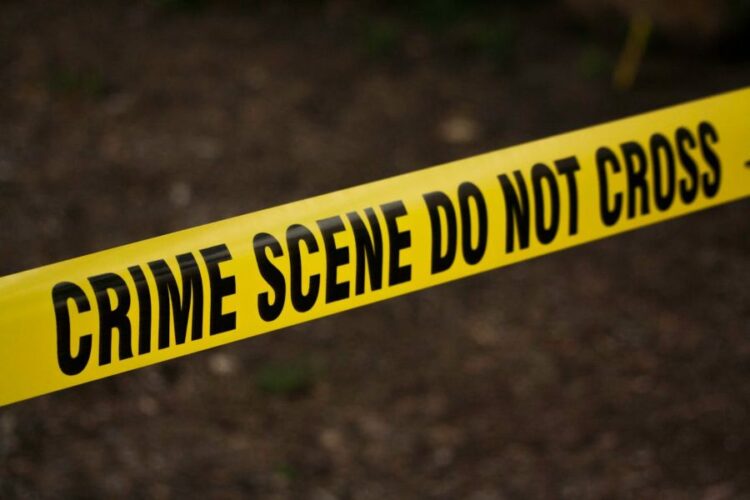Most often, when private property sustains damage due to a criminal act, it leaves more than the usual physical damage – it can raise questions of legal responsibility and financial liability.
It’s common for property owners, crime scene cleanup companies, and law enforcement agencies to grapple with who’s to pinpoint as accountable for cleanup and restoration costs.
It’s quite complex, but here are some actionable insights that may just be what you need, especially if the problem’s at your doorstep right now.
Property Crime Scene Liability: Who Holds the Bag?
Property restoration can be quite costly, whether due to natural calamities or some people’s doing. It may also depend on the damage and parts to be repaired, especially when a crime happens on your property; you’d certainly ask who’s to pay for its reparation.
You can’t just shoulder them because you’re the property owner, whether the crime involves vandalism, burglary, or violent ones. Typically, the responsibility for restoring your property rests with the culprit, the “criminal,” who is either on the loose or the one who died.
The saddest part? Some insurance policies cover only specific damages, depending on the crime type and policy terms. That’s why it’s best to know and understand your insurance coverage so you avoid out-of-pocket expenses on something that might make you a victim twice. Bio Recovery blood cleaning services ensure safe and thorough cleanup of biohazard-affected areas, restoring safety and hygiene with expert care.
Distinguishing Between Necessary and Unwarranted Cleanups
After a crime happens on your property, knowing what cleanup is needed can help you avoid unnecessary costs.
Not every situation demands professional decontamination and other services; it depends on the unlawful act and surrounding circumstances, such as:
- Violent Crimes
Some incidents, especially with bodily fluids like blood, need biohazard handling.
- Health Hazards Present
If there are still drug residues or infectious materials left on your property, you may need to call for specialized cleaning as it’s mandatory.
- Regulatory Compliance
Often, state laws and federal regulations require that a biohazard cleanup be conducted, leaving you with no other option.
- Property Damage Only
When your property becomes a “victim” of vandalism, but no hazardous materials or substances are involved, it may only need common repairs.
- Non-Biohazard Scenes
The crime may be one of those without health risks, so standard cleaning methods are often acceptable and appropriate.
Why Work with Experts
Professional crime scene cleanup companies can expertly assess your damage accurately. They can even distinguish necessary from optional services. This helps make sure that you comply with health and safety laws while keeping your costs down or none at all.
When in doubt, consulting a qualified cleanup firm can help you decide on the right approach, which often saves you time, money, and potential legal headaches.
Insurance Policy: Coverage and Limitations
Securing insurance at the outset can feel like you have a reliable double-edged sword, especially in property damage situations like these.
Many of today’s homeowners and business property insurance policies cover damage from crimes like burglary and vandalism but may not cover or have limitations on biohazard cleanup costs.
It’s always practical to be proactive when it’s about your insurance; you can better handle unprepared-for incidents if you’ve got competent property coverage in the first place.
Liability Pitfalls: Avoiding Unwarranted Restorations
More often than not, property owners faced with a crime scene feel pressured to immediately restore their property.
However, jumping into outright cleanups without thorough and professional assessment may lead to unwarranted decontamination and loading on unnecessary expenses.
That’s why it’s best to consult cleanup professionals first before you act so you avoid any hitches and high bills later. It’s like ordering expensive chemical decontamination when standard cleaning with household detergents could have been enough.
Coordinating with Law Enforcement: A Seamless Process
Before calling in professional cleanup teams, it’s best to remember that the law enforcement’s role did not end when they left the scene. You may need to cooperate and coordinate with them often for insurance claims and before the cleanup processes.
There are times when law enforcement agencies may need to release the scene officially before you can start cleanup or restoration activities, especially when biohazards are involved in the scene.
Anyway, when you hire an experienced cleanup company, they are already well-informed about these protocols and can easily take charge of the transition from investigation to restoration.
Legal Assistance: Navigating Liability
Seeking legal advice is a lot wiser if you encounter liability questions. Lawyers specializing in property, criminal, and personal injury law can walk you through some insights on your situation, especially with insurance disputes or claims in the offing.
In many cases, you might even be able to recoup restoration costs through court orders if the perpetrator or the criminal responsible for the damage is apprehended and charged. It may be a long shot route, but it’s worth considering if you sustained a sizable damage.
Overall, understanding liability in property crime scenes can effectively help you regain control and go through the complex intersection of legal, financial, and emotional considerations along the way.










